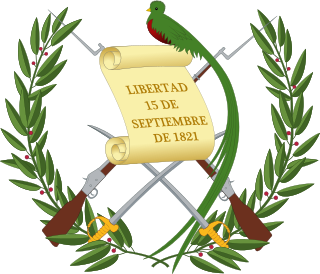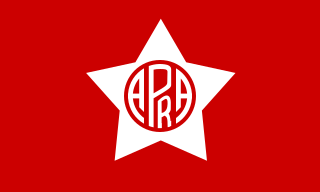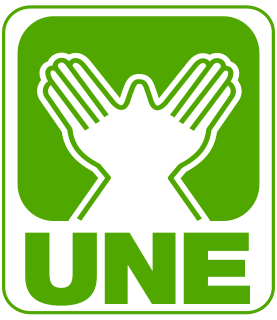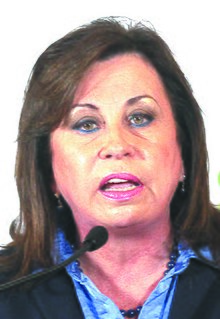| ||||||||||||||||||||||||||
| ||||||||||||||||||||||||||
| ||||||||||||||||||||||||||
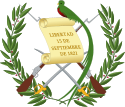 |
|---|
| This article is part of a series on the politics and government of Guatemala |
Executive |
Legislature |
| Judiciary |
General elections were held in Guatemala on 11 September 2011 in order to elect the President, Vice President, members of Congress, members of the Central American Parliament and mayors and councillors for all municipalities. The Patriotic Party emerged as the largest party in Congress, winning 56 of the 158 seats.
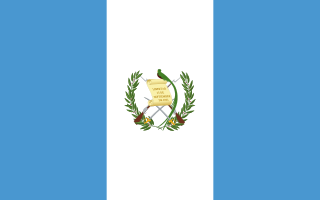
Guatemala, officially the Republic of Guatemala, is a country in Central America bordered by Mexico to the north and west, Belize and the Caribbean to the northeast, Honduras to the east, El Salvador to the southeast and the Pacific Ocean to the south. With an estimated population of around 16.6 million, it is the most populated country in Central America. Guatemala is a representative democracy; its capital and largest city is Nueva Guatemala de la Asunción, also known as Guatemala City.

The President of Guatemala officially known as the President of the Republic of Guatemala, is the head of state and head of government of Guatemala, elected to a single four-year term.

Vice President of Guatemala is a political position in Guatemala which is since 1966 elected concurrently with the position of President of Guatemala. The current Vice President is Jafeth Cabrera.
Contents
- Campaign
- Opinion polls
- Conduct
- Presidential candidates
- Results
- President
- Congress
- References
- External links
As no candidate received more than 50% of the vote, a second round of the presidential election was held on 6 November with Otto Pérez Molina of the PP facing Manuel Baldizón of Renewed Democratic Liberty. Pérez was elected with 53.7% of the vote.

Otto Fernando Pérez Molina is a Guatemalan politician and retired military officer, who was President of Guatemala from 2012 to 2015. Standing as the Patriotic Party candidate, he lost the 2007 presidential election but prevailed in the 2011 presidential election. During the 1990s, before entering politics, he served as Director of Military Intelligence, Presidential Chief of Staff under President Ramiro de León Carpio, and as chief representative of the military for the Guatemalan Peace Accords. On being elected President, he called for the legalization of drugs.
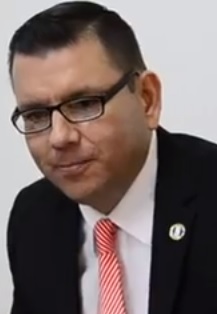
Manuel Antonio Baldizón Méndez is a Guatemalan politician, lawyer, and hotel entrepreneur. He was the leader of the "Libertad Democrática Renovada" (LIDER) Renewed Democratic Liberty party and was a candidate in the 2015 presidential election placing third and losing to Jimmy Morales. He was also a candidate in the 2011 presidential election, placing second and losing to Otto Pérez Molina in a run-off vote. On January 20, 2018, he was captured in the United States, when he was accused of accepting bribes from Odebrecht.
Renewed Democratic Liberty was a centre-right political party in Guatemala.








